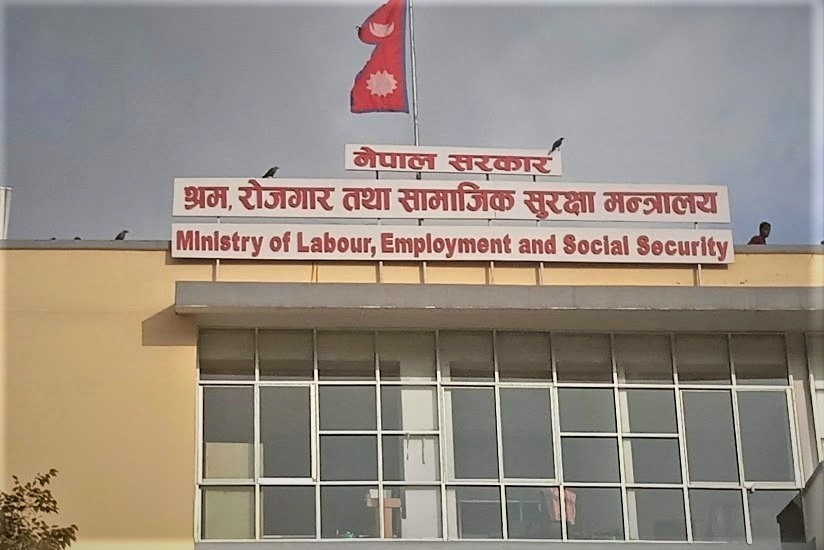Kathmandu: In a landmark move aimed at facilitating Nepali citizens working abroad, the Ministry of Labour, Employment and Social Security (MoLESS) has introduced amendments to the Foreign Employment Management Service Delivery Procedure 2081 BS.
This revision now enables Nepali workers, who initially traveled abroad on various visas excluding employment visas, to obtain Legitimization Work Permits from Nepali embassies in their respective host countries.
Under the revised procedure, workers who have secured employment visas in the countries they reside in can apply for the Legitimization Work Permit at the Nepali diplomatic missions before May 31, 2024.
This significant change caters to the needs of numerous Nepali workers who ventured abroad on visit or study visas without acquiring formal work permits, rendering them unaccounted for in official records maintained by the Foreign Employment Office.
The new process streamlines the acquisition of legitimization labor permits during foreign employment, eliminating the previous requirement for proof of medical examination or pre-departure orientation training. Workers can now conveniently submit online applications for the labor permit, which will be issued by designated offices or agencies authorized by the ministry.
For Nepali workers bound for Afghanistan, specific procedures outlined in a Government of Nepal decision dated October 6, 2016, will be followed. This involves submitting a recommendation letter from the employing company to the relevant office or department. However, this arrangement does not extend to countries or professions restricted by the Government of Nepal for foreign employment.
A notable departure from the previous protocol is the elimination of the need for workers to return to Nepal to obtain a work permit. Additionally, the requirement for visa certification has been waived for individuals transitioning from one labor approval to another country, facilitating seamless employment transitions.
Responsibilities for verifying and processing individual labor permits have been decentralized, with computer operators, non-gazetted first-class officials, and other designated officers entrusted with these tasks. The process has been simplified further by removing the need to submit a copy of the previous labor permit when applying for a new one.
However, stringent measures have been put in place to ensure the integrity of the application process. Any falsification or manipulation of information will be met with legal consequences, with the responsible individual or organization liable for punishment as per the law.
This comprehensive overhaul of the foreign employment management system reflects Nepal’s commitment to safeguarding the rights and interests of its citizens working abroad, while also promoting transparency and efficiency in labor migration processes.
